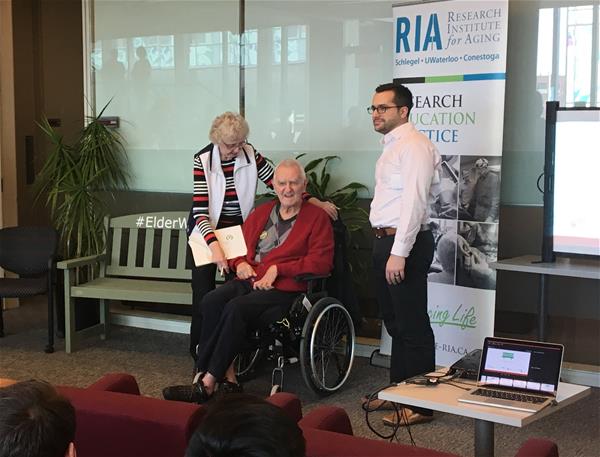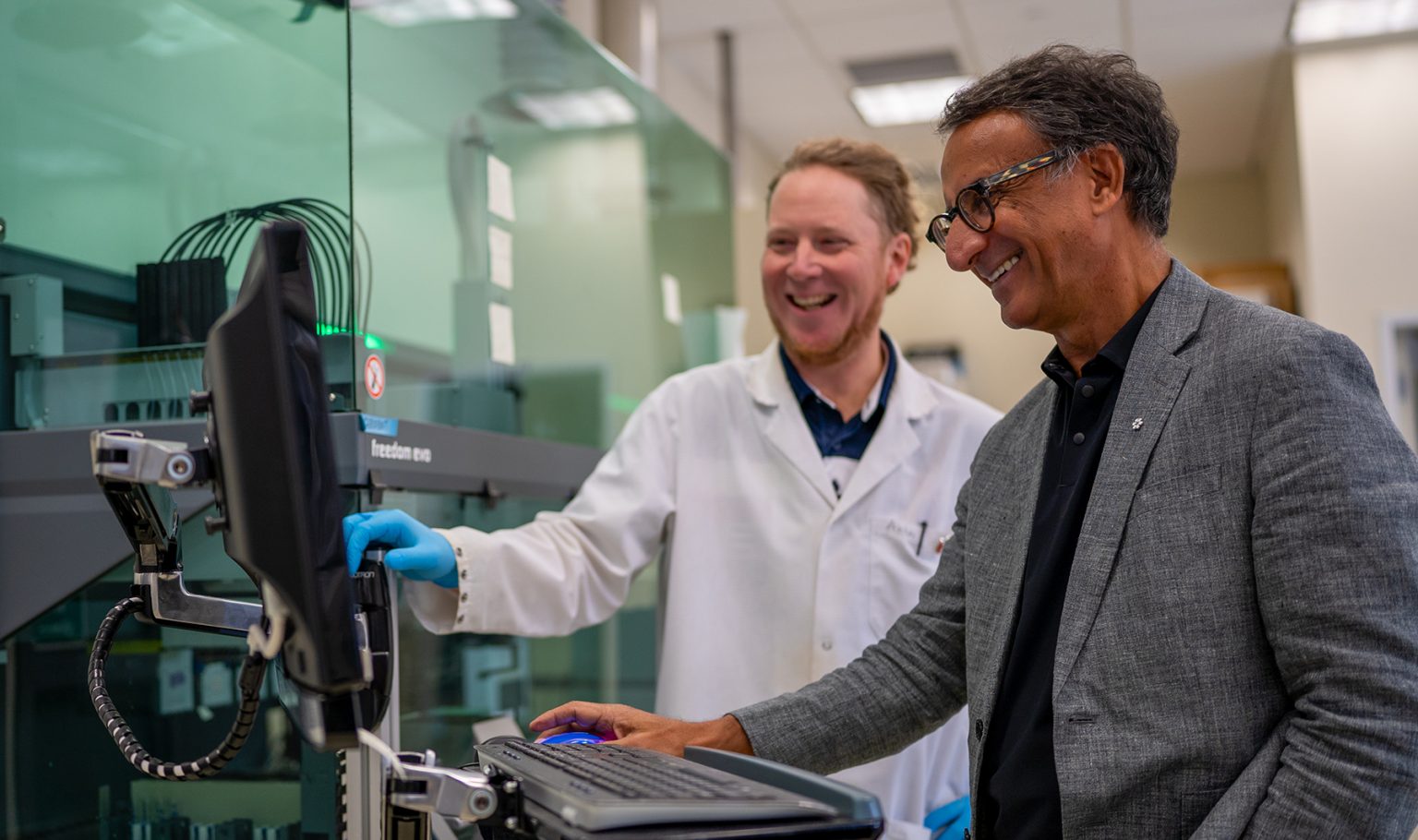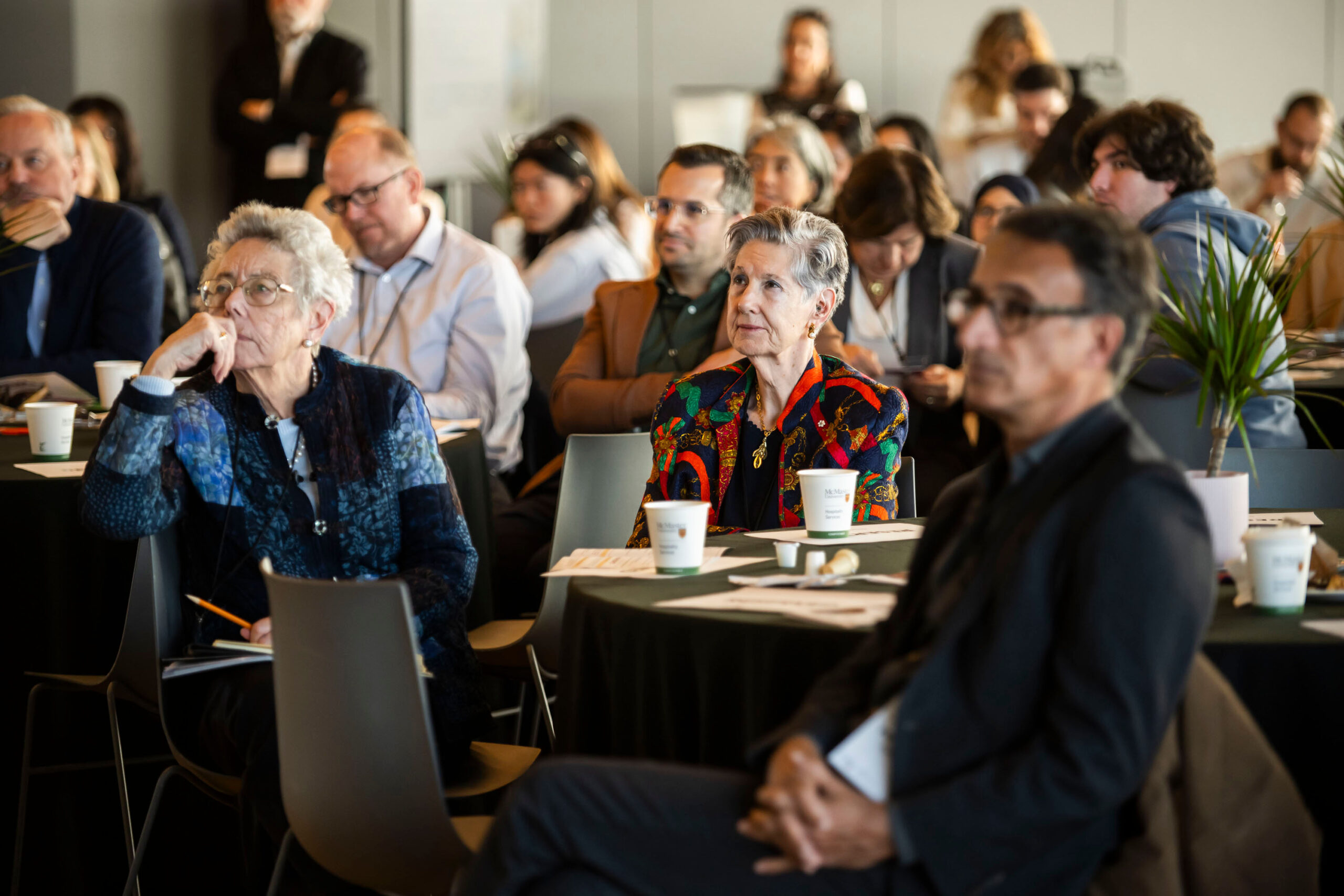
- Andrew Costa, Research Director at the Michael G. Degroote School of Medicine, WRC, helps unveil the green bench ​along with guests, Don ​Nightingale of Schlegel Villages and his wife Mary Buhr-​Nightingale.
Published: February 14, 2018
To build better relationships between future physicians and older adults, an elder care education program is being rolled out by the Waterloo Regional Campus of McMaster University’s Michael G. DeGroote School of Medicine.
The program, launched in January, intends to promote intergenerational learning through three main initiatives: MacPAGE, Make a New Old Friend and the Green Bench.
Cathy Morris, regional assistant dean of the Waterloo campus, says the learning is needed as by 2020 it’s anticipated that 30 per cent of Canadian clinic patients, 60 per cent of hospitalized patients and as many as 95 per cent of continuing care patients will be aged 65 and older
“We sat down a year ago to discuss where we can insert bits of geriatric competencies in every discipline,” she said.
“Out of that discussion came the strategic plan for this program which will give students many more opportunities to have experiences that will help inform their care decision making.”
The physicians who are trained to work with older adults are few in number.
“There are around 250 geriatricians in Canada,” said Morris. “When you have an [aging] population of 30 million, 250 geriatricians won’t go very far.”
Formed by WRC’s Big Data & Geriatric Models of Care research cluster, and supported by the McMaster Institute for Research on Aging (MIRA), MacPAGE is an online program designed for students who want to enhance their education in aging, care of the elderly and geriatrics.
The program is made up of six pillars of geriatric education including conferences and lectures; interprofessional events; clinical encounters; volunteerism and outreach; research and quality improvement; and online learning modules.
All of these pillars can be reached through experiences that range from local lectures to volunteerism. Students must complete at least four of the six pillars to become eligible to receive a certificate of completion from MIRA.
Waterloo campus students also have an opportunity to ‘Make a New Old Friend’ at Schlegel Villages University Gates and Winston Park, a retirement and assisted living facility in Kitchener-Waterloo. Learners will visit with their ‘old friends’ on a monthly basis during the 2018 academic term in order to facilitate experiential learning. Students and older adults stand to gain both intergenerational engagement and social interaction they might otherwise be lacking.
“This is a collaborative opportunity to learn from older adults that have been living and working a lot longer than we have, which is really important,” said Andrew Costa, research director at the Waterloo campus, Schlegel Chair for Clinical Epidemiology and Aging and member of MIRA.
The Green Bench program is exactly what it sounds like: a green bench, complete with an engraving of the hashtag #ElderWisdom, meant for students and older adults to sit and talk. The bench is a visual reminder meant to encourage people to talk in a casual setting, and to ultimately break down generational barriers. It will move from one location to another so that the experience can be shared broadly across the campus.
“We’ve been working hard with our cohorts and community partners to make these initiatives happen, and we’re thrilled to see them come to fruition,” said Costa.
Other community and research partners involved in the program include: McMaster’s Department of Health Research Methods, Evidence and Impact; Waterloo Regional Campus Research, Big Data & Geriatric Models of Care Research Cluster, and the Schlegel-UW Research Institute for Aging.
Learn more about McMaster’s Elder Care Education Program here.

